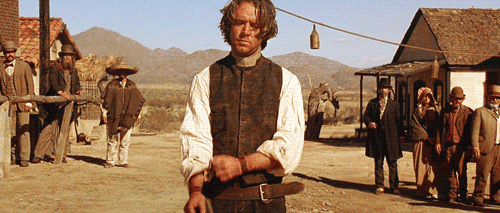This is part of the General Conference Odyssey.
In his book Born Believers, cognitive scientist Justin Barrett posits a cross-culturally developed natural religion. This natural predisposition should not be confused with theology, the latter being adaptive to culture according to Barrett. Natural religion is developed in the early stages of life and consists of several basic assumptions:[ref]See Barrett, Born Believers: The Science of Children’s Religious Belief (New York: Free Press, 2012), 137-138.[/ref]
- Superhuman beings exist.
- The natural world displays intentional design and purpose.
- Superhuman beings possess superknowledge.
- Superhuman beings are invisible or immortal, but within space and time.
- Superhuman beings have character, good or bad.
- Superhuman beings have free will and can interact with people.
- Moral norms exist and are unchangeable.
- Life after death.
Author Michael Shermer has referred to these predispositions patternicity and agenticity. He defines patternicity as “the tendency to find meaningful patterns in meaningless noise,” while agenticity is “the tendency to believe that the world is controlled by invisible intentional agents.” Shermer concludes, “We are natural-born supernaturalists.”[ref]See his book length treatment The Believing Brain: From Ghosts and Gods to Politics and Conspiracies–How We Construct Beliefs and Reinforce Them as Truths (New York: Times Books, 2011).[/ref]
I was reminded of this while reading Bruce R. McConkie’s talk in the October 1971 General Conference. According to McConkie, God “has planted in our hearts an instinctive desire to worship, to seek salvation, to love and serve a power or being greater than ourselves. Worship is implicit in existence itself. The issue is not whether men shall worship, but who or what is to be the object of their devotions and how they shall go about paying their devotions to their chosen Most High…Thus our purpose is to worship the true and living God and to do it by the power of the Spirit and in the way he has ordained. The approved worship of the true God leads to salvation; devotions rendered to false gods and which are not founded on eternal truth carry no such assurance.”
While McConkie’s harsh tone regarding pretty much every other concept of God besides that found in Mormonism is grating, I think he saves it by getting to the title of his talk: “[T]rue and perfect worship consists in following in the steps of the Son of God; it consists in keeping the commandments and obeying the will of the Father to that degree that we advance from grace to grace until we are glorified in Christ as he is in his Father. It is far more than prayer and sermon and song. It is living and doing and obeying. It is emulating the life of the great Exemplar” (italics mine).
This emulation consists of preaching the kingdom of God, healing the sick. We are to “walk in the light,” “rise above carnal things…bridle our passions, and…overcome the world. It is to pay our tithes and offerings, to act as wise stewards in caring for those things which have been entrusted to our care, and to use our talents and means for the spreading of truth and the building up of his kingdom…To worship the Lord is to visit the fatherless and the widows in their affliction and to keep ourselves unspotted from the world. It is to work on a welfare project, to administer to the sick, to go on a mission, to go home teaching, and to hold family home evening. To worship the Lord is to study the gospel, to treasure up light and truth, to ponder in our hearts the things of his kingdom, and to make them part of our lives.”
And much more.
He concludes, “True and perfect worship is in fact the supreme labor and purpose of man. God grant that we may write in our souls with a pen of fire the command of the Lord Jesus: “Thou shalt worship the Lord thy God, and him only shalt thou serve” (Luke 4:8); and may we in fact and with living reality worship the Father in spirit and in truth, thereby gaining peace in this life and eternal life in the world to come.”
McConkie has a tendency toward authoritarianism. However, this talk doesn’t really focus on obedience to authority or obedience for the sake of obedience. And though I have a slight aversion to lists, this strikes me more as a hearty display of Christian living. It is where our natural developments for supernatural belief and group association and cultural and religious instruction meet and come to full fruition. It’s where the rubber meets the road. McConkie’s talk is ultimately an exhortation to roll up our sleeves and get to work. There’s lots to be done.
And I totally dig it.

5 thoughts on “Emulating the Great Exemplar”
Comments are closed.